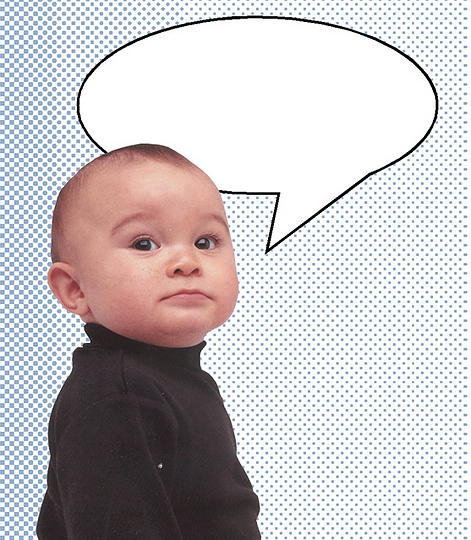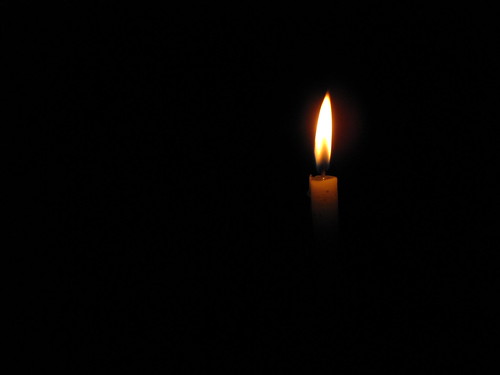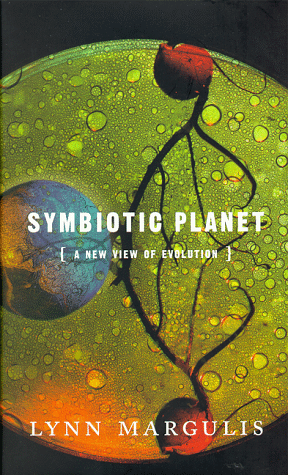

|
The essential teaching It’s better not to make value judgments. —Gautama the Buddha
I’d prefer not to have any preferences |
1 July 2010
|
||
|
Age at its best There is no shortages of literature portraying old age as a time of disability leading to depression. Here’s a portrait of a man at the end of a life well-lived, in the imagination of its author, 65 when he wrote these words. “While the Master’s gray-shot hair had gradually turned completely gray and then white, while his voice had grown softer, his handshake fainter, his movements less supple, the smile had lost none of its brightness and grace, its purity and depth...The radiant welcoming message of that smiling old man’s face, whose blue eyes and delicately flushed cheeks had grown paler with the passing year, was both the same and not the same. It had grown deeper, more mysterious, and intense...I experienced what radiated from him, or what surged back and forth between him and me like rhythmic breathing, entirely as music, as an altogether immaterial esoteric music which absorbs everyone who enters its magic circle as a song for many voices absorbs an entering voice...Like everyone else, I noticed our master’s increasing withdrawal and taciturnity, and the concurrent increase in his friendliness, the ever-brighter and more ethereal radiance of his face...” — Herman Hesse was born this day in 1877 Only in fiction, you say? I was fortunate to meet Bryn Beorse in 1979, the final year of his life, and he came as close to Hesse’s description as anyone I’ve ever known. Bryn led two lives: As a UC Berkeley professor of engineering, he was a pioneer in developing technology to draw solar energy from the ocean. As a Sufi master, he had a small following of devotees who recognized him as a master teacher. |
2 July 2010
Shamcher Bryn Beorse |
||
|
Renewing America “If once the people become inattentive to the public affairs, you and I, and Congress and Assemblies, Judges and Governors, shall all become wolves. It seems to be the law of our general nature, in spite of individual exceptions.” “The spirit of resistance to government is so valuable on certain occasions that I wish it to be always kept alive.” — Thomas Jefferson |
3 July 2010
|
||
|
Governance from the fishbowl I will fault human institutions before individuals for the world’s ills, and I will never fault ‘human nature’. We are endowed by evolution with behavioral plasticity. With a humane upbringing, in the context of a just and caring community, the great majority of people will behave decently. We all know that there are people who are capable of horrific crimes. But human societies can be constituted so as to resolve disputes justly, head off violence, and provide the basic needs of all members: food, shelter, medical care and, above all, an opportunity to contribute their talents and efforts for the common good. We should accept nothing less. People in general are not violent, not selfish, not uncaring. But, as P. T. Barnum noted (or not) , perhaps we as a species are too trusting, and easily fooled. When democratic societies act collectively in ways that are violent or grossly unjust, it is almost always because the people were hoodwinked by conniving leaders and a slavish press. I believe that transparency in government would be a remedy for the great majority of institutional failures, corruption and war. With any measure of democratic control, people simply would not tolerate the abuses of authority that are common today. I propose that submission to a public webcam 24/7 be a condition of public office for anyone entrusted with crafting legislation, making policy, or allocating public expenditures. — Josh Mitteldorf ‘In spite of everything, I still believe
people are really good at heart.’ |
4 July 2010
|
||
|
Revelation No more my heart shall sob or grieve.
I have known the One and His secret Play,
Drunk deep of Immortality, |
5 July 2010
|
||
|
‘The most important thing about a person — Barbara Kingsolver put these words in the mouth of a fictional Frida Kahlo, whose archetype was born this day in 1907. Nothing wondrous can come in this world unless it rests on the
shoulders of kindness. |
6 July 2010
|
||
|
What is reality? View from a Poet and a Physicist But Being was for him [Parmenides] not that is-ness but a ‘sphere’ in his poem
– what I was calling the possibility of existence, the laws that would
have to obtain for anything that did come into existence, an
indestructible fact – I don’t know if this sort of thing is a useful way
to speak of it. It seems like argumentation or puzzle solving. Whereas
the point is something else, the point is the mind operating in a marvel
which contains the mind – the point is the marvel, not this that one
likes and that which one doesn’t like, but the marvel, the Loved, the
Loved and Not Loved – It can really not be thought about because it
contains the thought, but it can be felt. It is what all art is about. Quantum mechanics is all about wave functions that live in a space of all possible configurations of the world. The wave function has a magnitude and a direction. The direction is an essential part of the calculation when two wave functions collide or overlap. But in the end it is only the magnitude that touches the reality that we can measure or observe. The probability of a given configuration is the magnitude squared. The relationship between the physics of the wave function world and the physics of the microscopic world has been a bone of contention in quantum physics since the beginning (1925). The most common resolution says that when we make any observation, suddenly the wave function ‘collapses’ to a point, meaning that the probabilities spread out over different possible configurations is all concentrated in single configuration that our experiment observed. Here’s an alternative possible relationship between the wave function and the world we observe. The gist is that the macroscopic world selects those quantum states that aren’t so fragile as to change noticeably every time you look at them, in a process likened loosely to Darwinian selection. An article published recently in the research journal Physical Review
Letters [by Brian Ferry and Tim Day] describes the transition from quantum to classical world as a
“decoherence” process that involves a kind of evolutionary progression
somewhat analogous to Charles Darwin’s concept of natural selection. The
authors built on two theories called decoherence and quantum Darwinism,
both proposed by Los Alamos National Laboratory researcher Wojciech
Zurek. The decoherence concept holds that many quantum states
“collapse” into a “broad diaspora,” or dispersion, while interacting
with the environment. Through a selection process, other quantum states
arrive at a final stable state, called a pointer state, which is “fit
enough” (think “survival of the fittest” in Darwinian terms) to be
transmitted through the environment without collapsing. (At least we can agree that it’s not a clockwork of particles streaking through space and bouncing off one another.) |
7 July 2010
|
||
|
“We are not held back by the love we didn’t receive in the past, but by the love we’re not extending in the present.” — Marianne Williamson, born this day in 1952 |
8 July 2010
|
||
|
It’s all cause for celebration If the falling of a hoof
If a lonely man’s final scream
And the nightingale’s perfect lyric
Then the Sun has at last parted
God has stopped playing child’s games
Shown to you the only possible
Go running through the streets
Make everyone and yourself ecstatically mad
Go running through this world
If the falling of a hoof upon this earth — Daniel Ladinsky, translating Hafiz, (from The Gift) If I could only live at the pitch that is near madness |
9 July 2010
|
||
|
The labor movement is alive and. . . alive Bob Herbert writes today about unionism as a social movement, unions that support one another in times of need, recognizing their common cause. “As long as I am identified with the leadership of this great union,
we are going to extend a hand of solidarity to every group of workers
who are struggling for justice.” “My view of the labor movement today,” he said in an interview, “is
that we got too focused on our contracts and our own membership and
forgot that the only way, ultimately, that we protect our members and
workers in general is by fighting for justice for everybody.” |
10 July 2010
|
||
|
Shed fear Always present, occasionally noticed. I’m sometimes aware of the influence of fear in my emotional life. Fear disturbs my sleep and regularly presents unwanted thoughts to my consciousness. Fear influences my decisions and holds me back in irrational ways. The campaign against fear has two parts. One is to confront fear, to put myself in situations that make me afraid. When these are chosen wisely, they need not entail actual risk to life and limb. The second piece is to study how irrational fear affects major life decisions, to imagine what decisions would be made in the absence of fear, to take those paths even before I am emotionally ready to do so. My daughter, who has been plagued by nightmares and obsessive fear her entire life, traveled on her own to spend this summer in Ghana. — Josh Mitteldorf |
11 July 2010
|
||
|
Woops... “How vain it is to sit down to write when you have not stood up to live.” — Henry David Thoreau, born this day in 1817
“Could a greater miracle take place than for us to look through each other’s eyes for an instant?” |
12 July 2010
|
||
|
I contain multitudes; you contain multitudes There is as much difference between us and ourselves as
Il se trouve autant de différence de nous à nous-mêmes que de nous à
autrui. |
13 July 2010
|
||
|
The French Revolution as it appeared to enthusiasts at its commencement Oh! pleasant exercise of hope and joy! — William Wordsworth, 1827 It was the best of times, it was the worst of times. |
14 July 2010
|
||
|
Human first One of the hardest psychological hurdles I had to deal with after the stroke was the loss of independence. Getting into and out of bed. Going to the bathroom. Going someplace in the car. Preparing my meals. I needed help with every one of those things. I’m embarrassed by having to ring my bell and summon my attendant for trivial things: “Would you close the window?” Would you tie my shoes?” Dependency has been so fierce because I used to be a super-independent person. I’ve always prided myself on my independence. I’ve come to appreciate, from my new perspective, just how much ‘independence is revered in our culture, and how humiliating we consider dependency. I can see the way I had absorbed those ideas from the culture, how deeply I shared them, and how much they influenced my values. I can also see that part of the appeal of independence was not to be vulnerable. When i became dependent, i was immediately much more vulnerable. But what I discovered was that it was my vulnerability which opened me to my humanity. i saw how I had pushed away my humanity in order to embrace my divinity out of fear of my vulnerability; and I saw he way the stroke was serving me, opening me to that human vulnerability. — Richard Alpert, aka Ram Dass |
15 July 2010
|
||
|
From a friend of Einstein He had a marvelous sense of humor, and that’s a very important part of life. The fact is that scientists have, on the whole, developed a sense of humor because so much of science is a history of failures. If you’re a creative person, you know it’s true in other kinds of creative life, but more so in science as so much of science ends up to be wrong. You do something, you spend weeks and months, and finally the whole thing collapses. You need to have a sense of humor, otherwise you couldn’t survive. And Einstein, I think, understood that particularly well. — Freeman Dyson, interviewed by Krista Tippett |
16 July 2010
|
||
|
Language Acquisitions Burn, or speak your mind. For the oak to untruss
The delicious tongue we speak with speaks us. ...for myself, motherhood was essential because I was extremely
selfish and egotistical and unaware of the deep reality of everybody
else in the world until I had a baby. Suddenly, I realized that we all
belong together and that we’ve got to fight to make that real and to
carry it out in our lives. I think the great thing that motherhood gives
you is a no longer relative kind of love: you really love your children,
period, if you’re lucky. You just love them, that’s all. You don’t
evaluate them, you don’t even care whether they love you or not—even
though that can be a great joy. But you’re not doing it because you want
to please them; you’re doing it because you love them, and that’s not
the same thing. It roots you in the world in a very profound way, I
think, in a very satisfying way. And it enables you to carry on well
past the first, second, and third stages of exhaustion. |
17 July 2010
|
||
|
The ultimate nature of things Shun the smugness of derived belief, no matter what the source.
The endless void; eternal bliss — are two sides of a coin.
Mystery be our sole refuge, But if (in moments of quiet reflection or ecstatic epiphany) you discover yourself to be among those lucky few within whom a window opens, a glimpse into the ultimate nature of things, a vision of compelling reliability because the experience itself bears with it the imprimatur of undeniable certainty — be you so blessed, then go for it, dude! — Josh Mitteldorf |
18 July 2010
|
||
|
Symbiosis everywhere Symbiosis, the system in which members of different species live in physical contact, strikes us as an arcane concept and a specialized biological term. This is because of our lack of awareness of its prevalence. Not only are our guts and eyelashes festooned with bacterial and animal symbionts, but if you look at your backyard or community park, symbionts are not obvious but they are omnipresent. Clover and vetch, common weeds, have little balls on their roots. These are the nitrogen-fixing bacteria that are essential for healthy growth in nitrogen-poor soil. Then take the strees, the maple, oak and hickory. As many as three hundred different fungal symbionts, the mycorrhizae, we notice as mushrooms, are entwined in their roots. Or look at a dog, who usually fails to notice the symbiotic worms in his gut. We are symbionts on a symbiotic planet, and if we care to, we can find symbiosis everywhere. Physical contact is a nonnegotiable requisite for many differing kinds of life. |
19 July 2010
|
||
|
‘True, we love life, not because we are used to living, but because we are used to loving. There is always some madness in love, but there is also always some reason in madness.’ — Francesco Petrarca, born this day in 1304
He was the first to climb a mountain merely for the delight of looking from its top. |
20 July 2010
|
||
|
Seems to explain a lot, doesn’t it? ‘I once befriended two little girls from Estonia, who had narrowly escaped death from starvation in a famine. They lived in my family, and of course had plenty to eat. But they spent all their leisure visiting neighbouring farms and stealing potatoes, which they hoarded. Rockefeller, who in his infancy had experienced great poverty, spent his adult life in a similar manner.’ — Bertrand Russell, from his Nobel Lecture, 1950 A wise herd will learn to tolerate the eccentricity of those who rise
above |
21 July 2010
|
||
|
Wikileaks The most shocking misdeeds of governments and powerful corporations can’t stand up to the light of day. When these actions become unhidable, they will have to cease. Over the last decade, the Internet has changed expectaions about what can be kept secret. Wikileaks has facilitated the work of the whistleblower like nothing before in history. Journalism as a mouthpiece for the powerful cannot long endure. “...We receive a classified document anonymously...we vet it like a regular news organization...release it to the public, then defend ourselves against the inevitable legal and political attacks...We almost never know the identity of the source, and in the rare cases we find out, we destroy that information immediately... “What sort of information is important in the world? What sort of information can achieve reform. There is a lot of information, but information that large organizations are spending economic effort to conceal — that’s a signal that when the information gets out there’s a hope of it doing some good. That’s what we’ve found in practice, and that’s what the history of journalism has shown.” |
22 July 2010
|
||
|
Do you have answer? David Eagleman is a neuroscientist who flirts with positions that are unacceptable to the scientific community: Is it possible that some aspects of human consciousness are independent of the brain? Eagelman calls himself a ‘possibilian’. Sum: Forty Tales from the Afterlives is a collection of fantasies about what out lives might really be about, as discovered after they are over. #10 ‘Spirals’ : In the afterlife, you discover that you are (were) a computing device designed by dim-witted creatures who hoped you (we) would be able to answer cosmic questions that the dim-witted creatures can’t figure out themselves.Listen to a reading of this chapter from Eagleman’s fantasy, ‘Sum’
#7 ‘The
Cast’ : Do
people from the past play roles in your dreams? Acting in other
people’s dreams is a major occupation for souls in
the afterlife. Somebody’s got to do it. Book review and interview by Robert Jensen “As scientists, our goal in some sense is to reduce the mystery, but that doesn’t reduce the awe” |
23 July 2010
|
||
|
24 July 2010
|
||
|
Q & A Q: Would a computer programmed to be ‘conscious’ fear its own
death? Beyond this, it has become a cliche that without awareness of death,
life would not be precious or impassioned or zestful, that we would
squander our time in uninteresting ways. Perhaps this is true, or
perhaps it is an overblown, collective cry of ‘sour grapes’. — Josh Mitteldorf |
25 July 2010
|
||
|
Szymanowski Just yesterday I discovered the music of Karol Szymanowski (Polish, 1882-1937). He reaches to capture the experience of mystical ecstasy. Listen to Three Myths, Op 30, for violin and piano, from Polish TV |
26 July 2010
|
||
|
Ahimsa Nonviolence does not mean that we respond to a violent world with passivity and introspection. Rather, nonviolence is our commitment to end war and oppression with courageous acts of passive confrontation, because we know this means to be most effective in the long haul. — Josh Mitteldorf |
27 July 2010
Gandhi Salt March, 1930 |
||
|
Beatrix Potter was strong-minded in an age when women were expected to be obedient. She wrote and illustrated the children’s stories for which she is so well known as a way to independence. Beatrix Potter discovered the symbiotic nature of lichens, and presented her results to a dubious biology community. Beatrix Potter kept a diary in secret code from age 15-30, which was only deciphered (and published) 15 years after her death. Happy Birthday, Beatrix, a dozen dozen years old today. |
28 July 2010
|
||
|
“Two aesthetics exist: the passive aesthetic of mirrors and the active aesthetic of prisms. Guided by the former, art turns into a copy of the environment’s objectivity or the individual’s psychic history. Guided by the latter, art is redeemed, makes the world into its instrument and forges, beyond spatial and temporal prisons, a personal vision.” —Jorge Luis Borges, from a Suzanne Jill Levine interview on Borges The Art of Poetry
The composition of vast books is a laborious and impoverishing
extravagance. To go on for five hundred pages developing an idea whose
perfect oral exposition is possible in a few minutes! A better course of
procedure is to pretend that these books already exist, and then to
offer a resume, a commentary . . . More reasonable, more inept, more
indolent, I have preferred to write notes upon imaginary books. |
29 July 2010
|
||
|
Arriving Again and Again Without Noticing I remember all the different kinds of years. Angry, or brokenhearted, or afraid. I remember feeling like that walking up a mountain along the dirt path to my broken house on the island. And long years of waiting in Massachusetts. The winter walking and hot summer walking. I finally fell in love with all of it: dirt, night, rock and far views. It's strange that my heart is as full now as my desire was then. |
30 July 2010
|
||
|
Foundations Life lies before us as a huge quarry lies before the architect. He deserves not the name of architect except when, out of this fortuitous mass of materials, he can combine with the greatest economy, fitness and durability, some form, the pattern of which originated in his own spirit...Believe me, most part of the misery and mischief, of all that is denominated evil in the world, arises from the fact that men are too remiss to get a proper knowledge of their aims and, when they do get it, to work persistently in attaining them. They seem to me like people who have taken up a notion that they must and will erect a tower, but who yet expend on the foundation not more stones and labour than would be sufficient for a hut. — Goethe |
31 July 2010
|





























